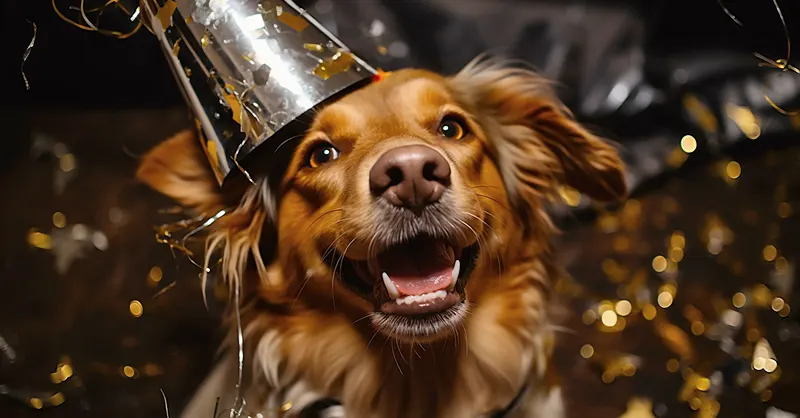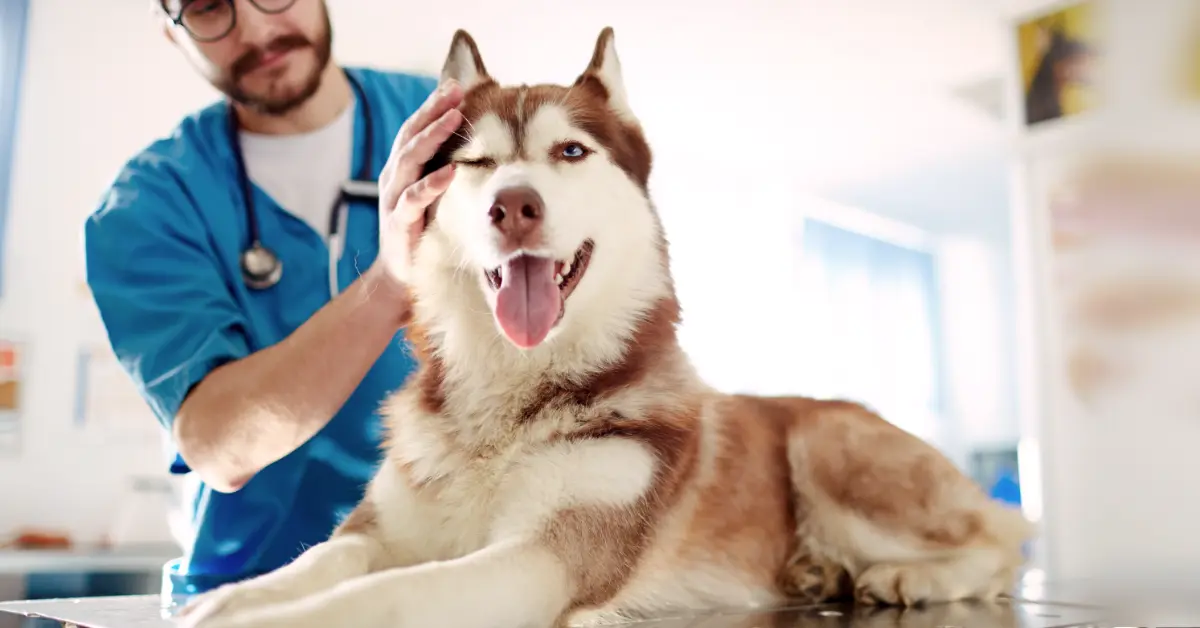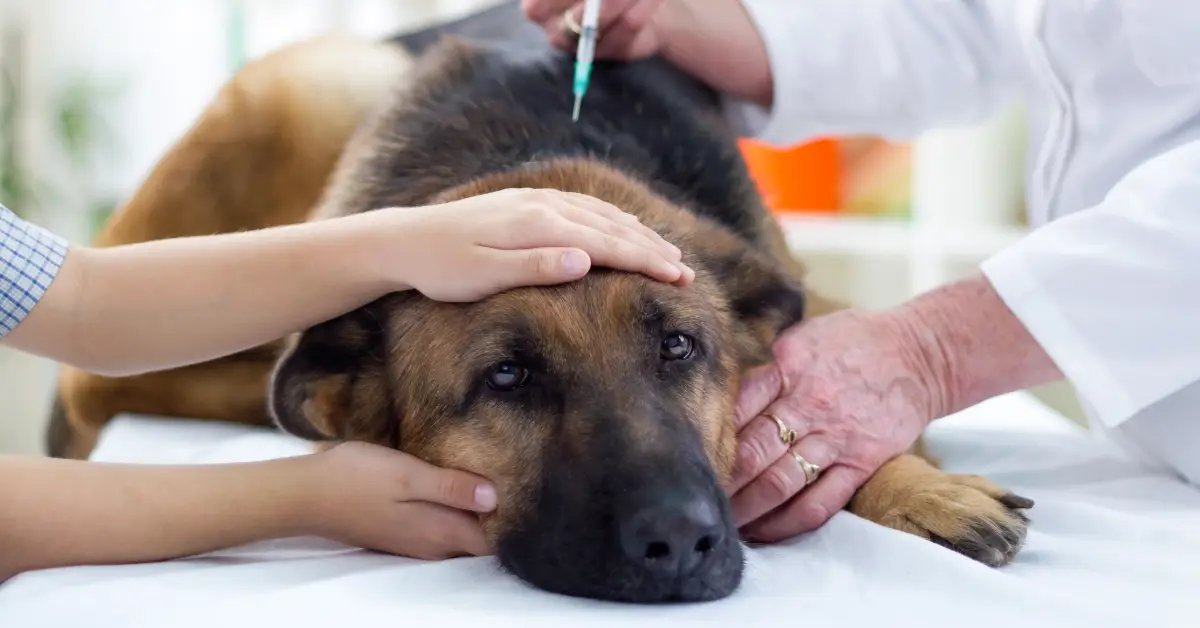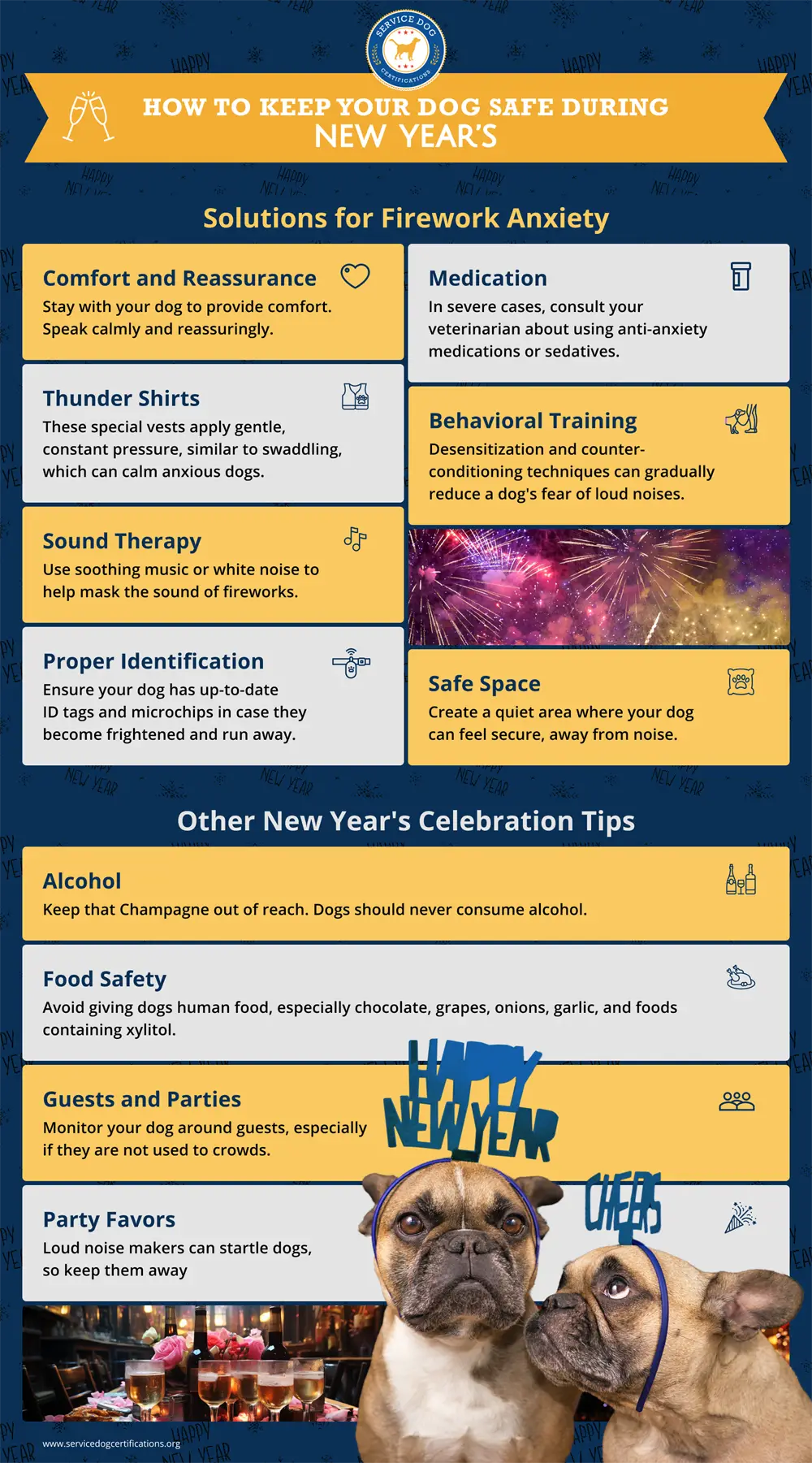How to Keep Your Dog Safe During New Years

New Year’s Eve can be stressful for dogs due to fireworks and changes in their environment. Understanding and preparing for these challenges can help ensure a safe and comfortable holiday for your furry friend.
Why Dogs Fear Fireworks
Dogs’ fear of fireworks is mainly due to their loud and unpredictable nature. Dogs have more acute hearing than humans, making the intense sound of fireworks particularly startling and distressing. The unexpectedness of fireworks – sudden loud noises and bright flashes without a discernible pattern – can also trigger a dog’s instinctual flight response.
However, not all dogs react the same way. Some may be more desensitized to loud noises or may have temperaments that are less prone to anxiety. Factors like a dog’s age, environment, upbringing, and breed can influence their reaction to fireworks. Dogs with prior positive associations with loud noises or those who have been gradually exposed to similar sounds in a controlled manner may exhibit less fear.
Dog Reactions to Fireworks
It’s essential to observe your dog’s behavior and offer comfort and security. Common signs of distress in dogs include trembling, hiding, whining or barking, pacing, drooling, attempting to escape, and changes in normal behavior.
Some dogs might even refuse to eat or lose control of their bladder. Monitoring your dog’s behavior closely during fireworks and providing comfort and a safe environment is crucial.
Share this image on your site
Solutions for Firework Anxiety
- Comfort and Reassurance: Stay with your dog to provide comfort. Speak calmly and reassuringly.
- Safe Space: Create a quiet area where your dog can feel secure, away from noise.
- Sound Therapy: Use soothing music or white noise to help mask the sound of fireworks.
- Thunder Shirts: These special vests apply gentle, constant pressure, similar to swaddling, which can calm anxious dogs.
- Medication: In severe cases, consult your veterinarian about using anti-anxiety medications or sedatives.
- Behavioral Training: Desensitization and counterconditioning techniques can gradually reduce a dog’s fear of loud noises.
- Proper Identification: Ensure your dog has up-to-date ID tags and microchips in case they become frightened and run away.
Other New Year’s Celebration Tips
- Food Safety: Avoid giving dogs human food, especially chocolate, grapes, onions, garlic, and foods containing xylitol.
- Alcohol: Keep that Champagne out of reach. Dogs should never consume alcohol.
- Party Favors: Loud noise makers can startle dogs, so keep them away.
- Guests and Parties: Monitor your dog around guests, especially if they are not used to crowds.
Conclusion
By understanding and addressing the unique challenges of New Year’s Eve, you can help your dog have a safe and stress-free holiday. Remember, a little preparation can go a long way in ensuring a happy start to the new year for you and your pet.
About the Author: The writing team at Service Dog Certifications is made up of folks who really know their stuff when it comes to disability laws and assistance animals. Many of our writers and editors have service dogs themselves and share insights from their own experiences. All of us have a passion for disability rights and animals.
Related Articles

Benefits of a Raw Food Diet for Dogs
Diet is a very important part of keeping your dog healthy. There have been many articles about dog food made in China that had harmful ingredients. A raw food diet is the most natural and healthiest way to feed your favorite canine. Here are a few arguments about feeding your dog a raw food diet. […]

Read More

Can You Deduct Service Dog Veterinary Bills on Your Taxes?
Yes, service dog vet bills are tax-deductible medical expenses. Food, grooming, training costs, and equipment all qualify, too. The only catch is that your dog needs to be an actual working service dog. Expenses for regular pets and emotional support animals don’t count, no matter how much comfort your animal provides. The government wants proof […]

Read More

Should I Vaccinate My Service Dog?
Yes, you should vaccinate your service dog, as they are required by many state and local laws to be vaccinated, just like a pet dog. Additionally, vaccinations like rabies are required for air travel. Just because your dog is a service dog does not exempt them from vaccinations, unlike it does for pet fees and […]

Read More
